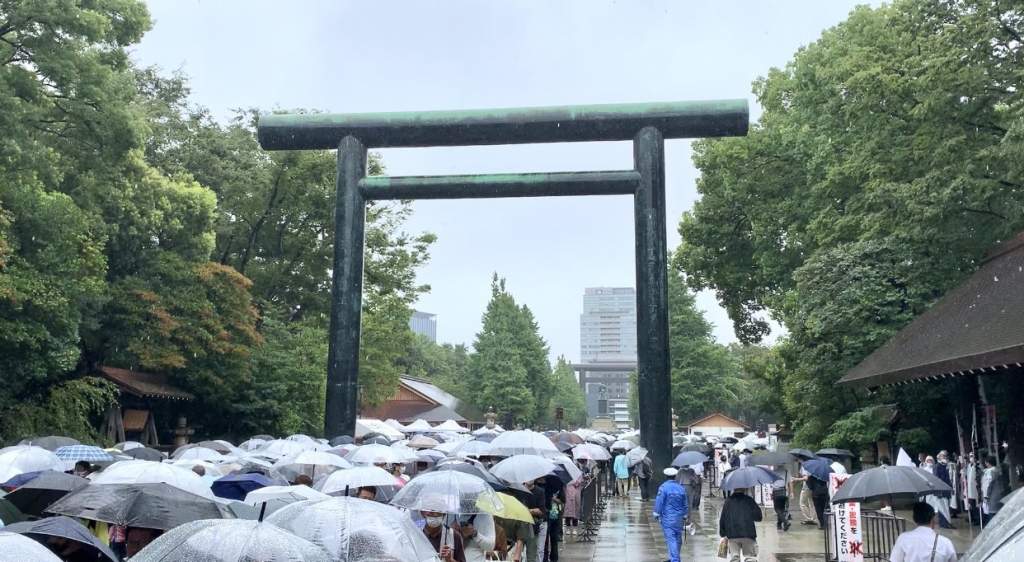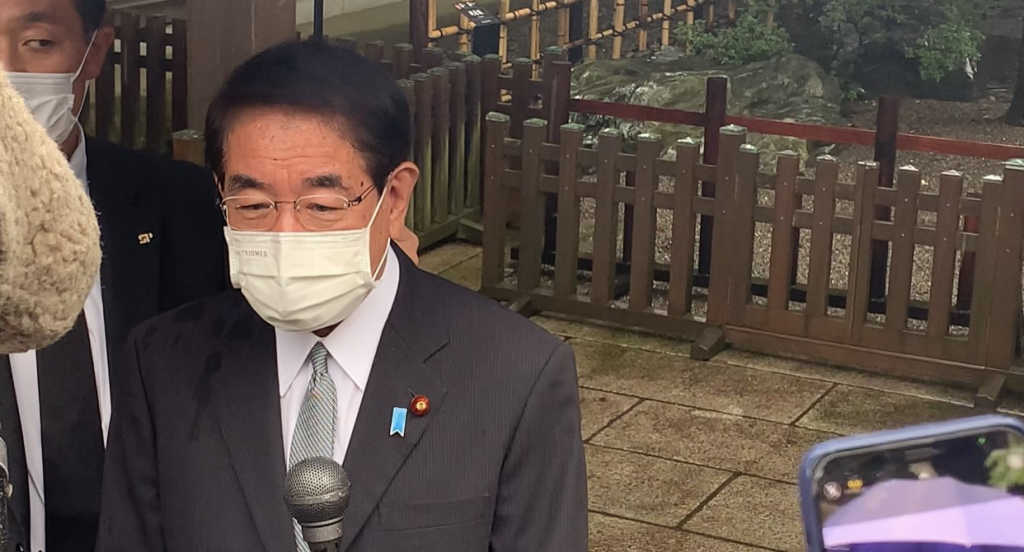



Khaldon Azhari
TOKYO: Japanese Liberal Democratic Party Executive Policy Council, Hakubun Shimomura, joined ministers and other leaders visiting Yasukuni Shrine in Tokyo on August 15 to mark the 76th anniversary of World War II end.
Shimomura, who also holds posts such as the chair of the Election Committee of his party, paid the visit to honor the Japanese war dead whose souls, according to Shinto belief, rest at the Shrine.
Shimomura visit came at the heal of similar visits today by former Prime Minister Shinzo Abe and current Minister of Education Koichi Hagiuda. He told reporters at the Shrine gate, “I have prayed for the spirits. Japan has been at peace for 76 years to this day, so I once again pledge we will never wage war.”
Politicians’ visits to Yasukuni Shrine often anger Japan’s Chinese and Korean neighbors, who consider the Shrine a symbol of Japanese militarism. In the Shrine, the so-called Class-A war criminals were accused of committing crimes during WWII by the Tokyo Tribunal set up after Japan’s surrender. The victors in the war controlled the trials.
Many Japanese nationalists say Japan was singled out in the trials. They claim that those who committed other war crimes in East Asia, including the bombing of Hiroshima and Nagasaki, were not judged accordingly and that this “shows the hypocrisy of the trials of the WWII victors.”
In recent times, Japanese Emperors and sitting Prime Ministers have avoided visiting the Shrine on August 15, known as VJ Day in the West and Independence Day in Korea. The Japanese call it the End of the War Day.
The Japanese government tries to avoid diplomatic tension with China and Korea over visits to the Shrine by senior politicians, but many parliamentarians and ministers continue to visit each year. The last Prime Minister who visited the Yasukuni Shrine on August 15 was Junichiro Koizumi, who while prime minister in 2001 and on five subsequent occasions. Koizumi claimed he was visiting as a private citizen, not as prime minister, but this didn’t appease China and Korea.
On Sunday, Koizumi’s son, Environment Minister Shinjiro Koizumi, also visited the Shrine.
The Shrine is part of Japanese culture, and ordinary people visit to respect the war dead and relatives killed in action. Some Japanese say that the complaints of China and Korea are not justified and constitute interference in Japan’s domestic affairs and culture.